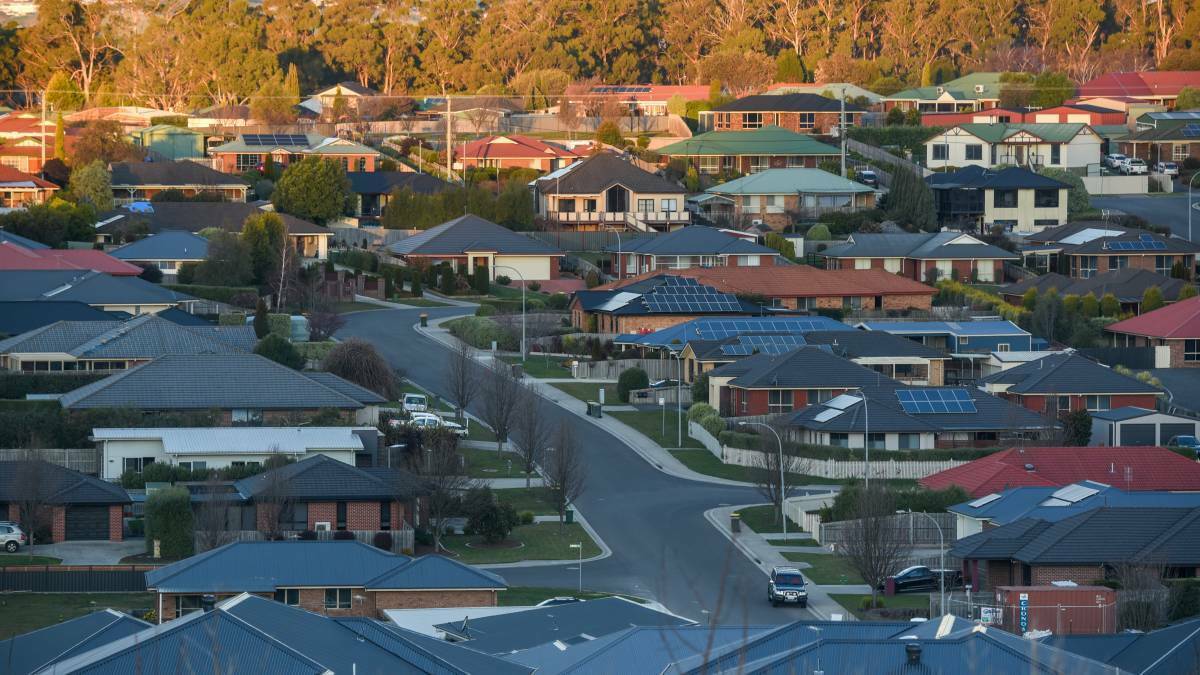
One in two Tasmanian households are in mortgage stress - more than any other jurisdiction in the country.
Subscribe now for unlimited access.
$0/
(min cost $0)
or signup to continue reading
New analysis from Digital Finance Analytics shows that 56.8 per cent of households in Tasmania were in mortgage stress in May, up 1 per cent on the previous month.
New South Wales saw an increase of 3 per cent, reaching 41.3 per cent, while Canberra also recorded a 3 per cent increase, reaching 42 per cent of households.
IN OTHER NEWS:
DFA measures mortgage stress in cash flow terms, with a household considered to be in mortgage stress when its outgoing costs exceed its net income.
Martin North, director of DFA, said a "perfect storm" had led to rampant mortgage stress in Tasmania, with rising property prices, low wage growth and interstate buyers all exacerbating the problem.
"It's a structural question," he said. "This is not just a COVID-created issue."
"This is going to continue because there's no prospect of income growth that I see on the horizon, other than maybe matching inflation but it's not going to be sufficient to cover any of the real issues that we've got here.
"And you've still got those housing pressures and you've still got the interstate buyers pushing prices higher. So, unfortunately, [there's] no simple way out of this."
Mr North said the state government needed to adjust policy settings to remedy the issue.
"The fact is, locals in Tassie are being taken to the cleaners because of the interstate surge," he said." And a lot of it is investment property. A lot of it is being bought and then let out on Airbnb so even local people can't rent it in Tassie."
"It's a structural nightmare."
Tasmanian Council of Social Service chief executive Adrienne Picone said as rental stress increased, so did mortgage stress.
The fact is, locals in Tassie are being taken to the cleaners because of the interstate surge.
- Martin North, Digital Finance Analytics director
"A lack of affordable rentals in Tasmania is pushing some Tasmanians into the housing market to secure a roof over their head but often with the consequence of mortgage agreements above and beyond what they can afford, or which due to income loss or reduction, is no longer financially achievable," she said.
"The cost of many of our essential goods and services such as housing - especially rentals - health costs, childcare, education and fuel costs are increasing at a rate greater than inflation, adding further pressure to those struggling to get by. This is having a profound effect on the ability for Tasmanians to meet bills and mortgage payments, and in many cases pushing them to the brink."
Ms Picone said Tasmania "desperately" needed more social and affordable housing "so all Tasmanians can be suitably and securely housed and are not caught in the crossfire of an unsociable housing market where prices far exceed incomes".
State Development, Construction and Housing Minister Michael Ferguson said rising house prices were a "growing pain of our strong economy" and reflected the desirability of Tasmania as a place to live and work.
"That's why we are delivering a range of measures designed to build more houses and make it easier to get into the market," he said.
Mr Ferguson said the government had a three-pronged approach to improving the state's housing situation, including the $30,000 First Home Owners Grant and stamp duty concessions, the delivery of 3500 new social and affordable homes by 2027 and an additional $10 million investment into the HomeShare program.
What do you think? Send us a letter to the editor:


